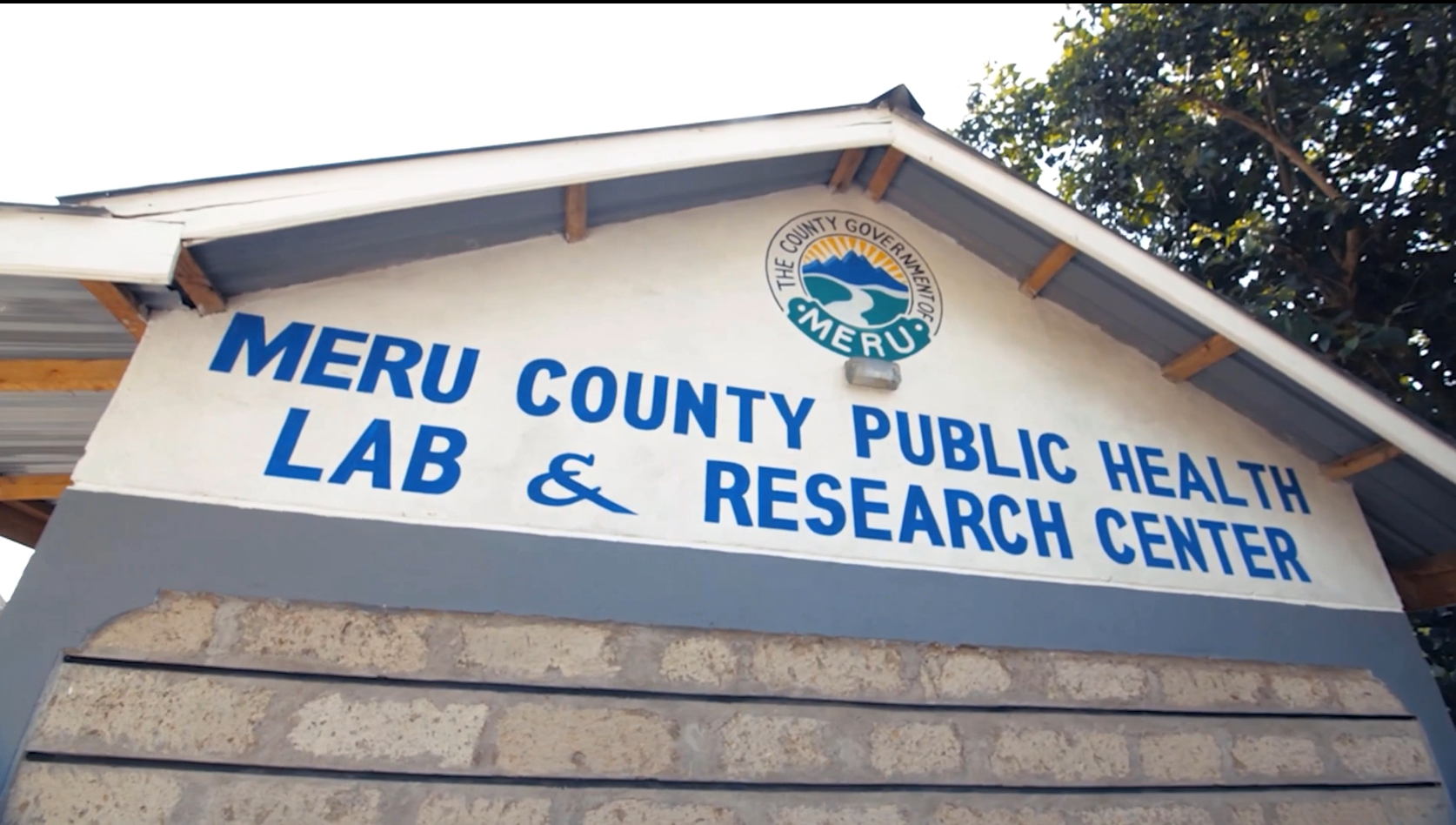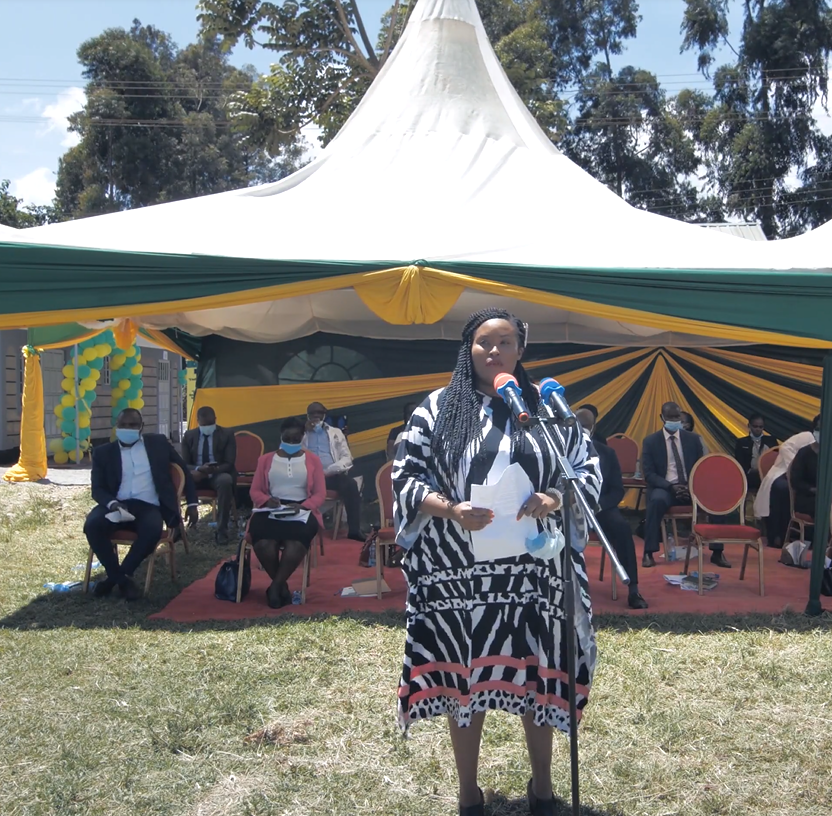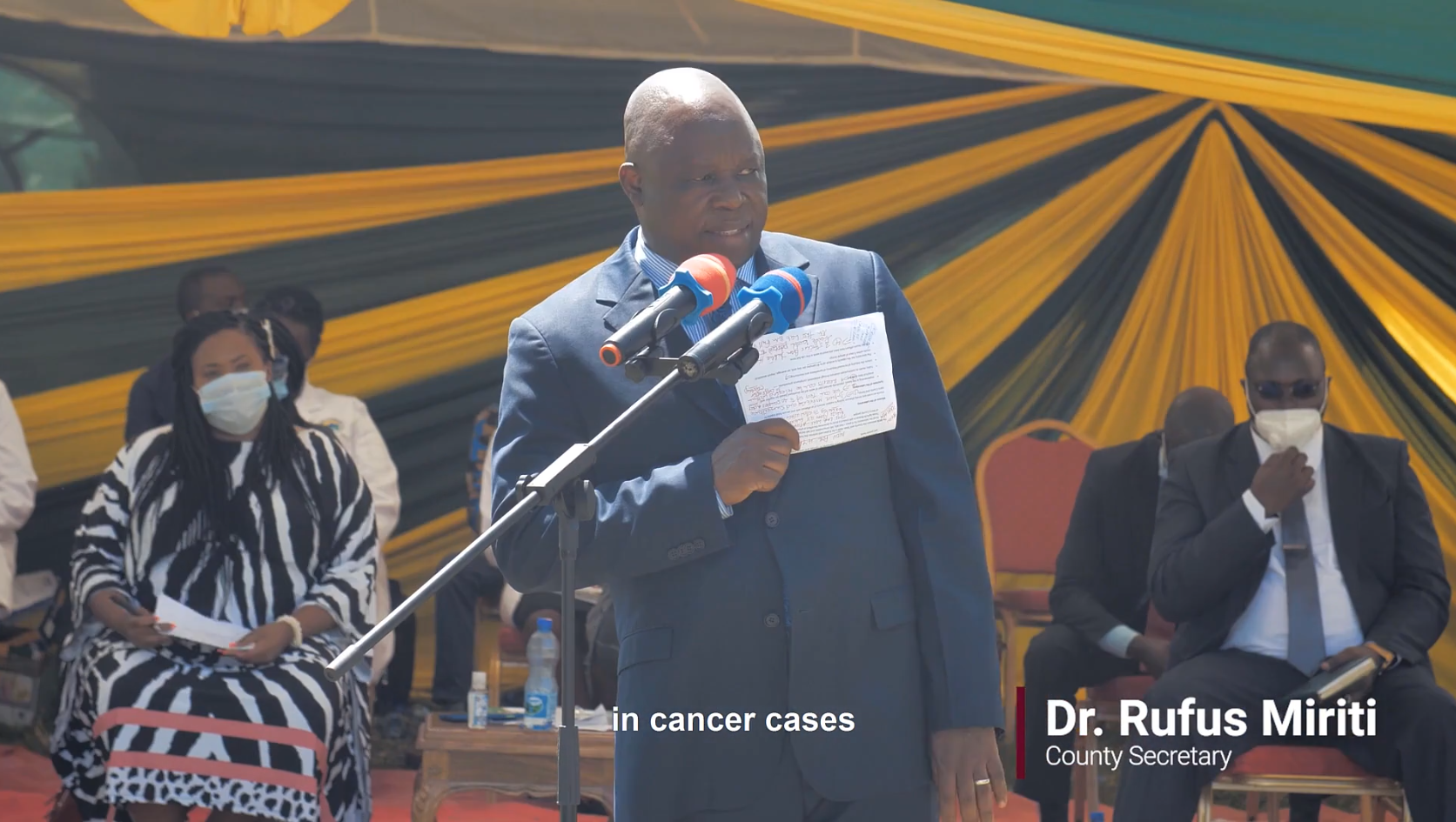TAMU Agrilife and Meru County launch Aflatoxin Testing Laboratory in Kinoru

 Tour of Kinoru Afalatoxin Testin Laboratory
Tour of Kinoru Afalatoxin Testin Laboratory

 Ms. Ann Muiuri, TAMU Agrilife
Ms. Ann Muiuri, TAMU Agrilife

 Dr. Rufus Miriti, Meru County Secretary
Dr. Rufus Miriti, Meru County Secretary
On February 25, 2021, Meru County, in collaboration with TAMU Agrilife, announces launched the Meru County Testing Public Health lab and Research Center at the Kinoru Dispensary.
The establishment of the Meru Testing and Research Laboratory is part of an ongoing effort by TAMU Agrilife to manage aflatoxin risk through a connected and transparent market in
Kenya. The main mission of the laboratory is to provide accurate and timely aflatoxin testing to support delivery of an aflatoxin safe and secure food supply to Meru County and
Kenya. The lab’s testing services will be available to all stakeholders in the food supply value chain with the goal of assuring the safety and quality of the grains in the supply
chain.
Dr. Rufus Miriti, Meru County Secretary spoke at the inauguration on behalf of the Governor of Meru Country – His Excellency the Honorable Kiraitu Murungi. Dr. Miriti stated the
lab will reduce aflatoxin related deaths in the county by providing timely testing of samples collected during field surveillance with the goal of preventing the consumption of
aflatoxin contaminated foods. According to Ann Muiruri, TAMU Agrilife, samples collected in Meru County indicate that aflatoxin is prevalent in food. The County has assigned
three quality control officers to laboratory who will be trained by TAMU Agrilife to conduct testing on food samples. The laboratory is part of a larger effort by the Governor
to find solutions to increasing cancer cases in the County. Mr. John Inanga, the Public Health Officer of Meru County, called on the residents of Meru County to support the
laboratory in its efforts.
Future plans for the lab include:
- Achieving ISO 17025 accreditation
- Implementing a statistically derived risk-based plan of work to monitor aflatoxin in the market
- Communicating aflatoxin monitoring results through a public website to support a transparent marketplace
- Conducting research to support development and delivery of aflatoxin intervention strategies
- Providing laboratory surge capacity with a maximum sample analysis capacity of 40 per day
- Implementing quality systems by the private sector and verified by this lab, leading to a shared governance approach to manage aflatoxin risk
- Serving as an aflatoxin risk management model that can be duplicated elsewhere in Kenya and Africa
References
Meru County launches Aflatoxin testing laboratory to tame spread (In The Mt. Kenya Times)
Meru County Testing Public Health lab and Research Center Launch (February 25, 2021)